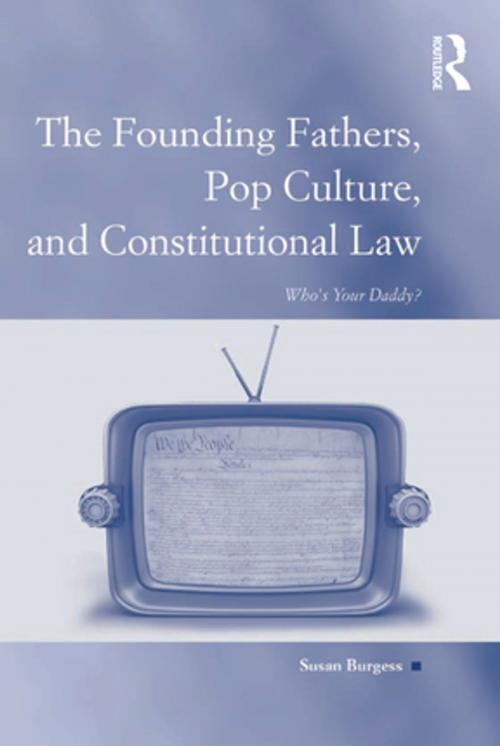The Founding Fathers, Pop Culture, and Constitutional Law
Who's Your Daddy?
Nonfiction, Reference & Language, Law, Jurisprudence| Author: | Susan Burgess | ISBN: | 9781317031413 |
| Publisher: | Taylor and Francis | Publication: | March 3, 2016 |
| Imprint: | Routledge | Language: | English |
| Author: | Susan Burgess |
| ISBN: | 9781317031413 |
| Publisher: | Taylor and Francis |
| Publication: | March 3, 2016 |
| Imprint: | Routledge |
| Language: | English |
Applying innovative interpretive strategies drawn from cultural studies, this book considers the perennial question of law and politics: what role do the founding fathers play in legitimizing contemporary judicial review? Susan Burgess uses narrative analysis, popular culture, parody, and queer theory to better understand and to reconstitute the traditional relationship between fatherhood and judicial review. Unlike traditional, top-down public law analyses that focus on elite decision making by courts, legislatures, or executives, this volume explores the representation of law and legitimacy in various sites of popular culture. To this end, soap operas, romance novels, tabloid newspapers, reality television, and coming out narratives provide alternative ways to understand the relationship between paternal power and law from the bottom up. In this manner, constitutional discourse can begin to be transformed from a dreary parsing of scholarly and juristic argot into a vibrant discussion with points of access and understanding for all.
Applying innovative interpretive strategies drawn from cultural studies, this book considers the perennial question of law and politics: what role do the founding fathers play in legitimizing contemporary judicial review? Susan Burgess uses narrative analysis, popular culture, parody, and queer theory to better understand and to reconstitute the traditional relationship between fatherhood and judicial review. Unlike traditional, top-down public law analyses that focus on elite decision making by courts, legislatures, or executives, this volume explores the representation of law and legitimacy in various sites of popular culture. To this end, soap operas, romance novels, tabloid newspapers, reality television, and coming out narratives provide alternative ways to understand the relationship between paternal power and law from the bottom up. In this manner, constitutional discourse can begin to be transformed from a dreary parsing of scholarly and juristic argot into a vibrant discussion with points of access and understanding for all.















